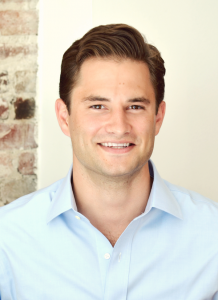Author: Martin Trust Center
Dom Smith chats with PPLWork co-founder and CEO, Nathan Green about the aims of his business, and plans for the future.

Can you introduce yourself?
My name is Nathan Green, I’m a First Year here at MIT Sloan, and I am the co-founder and CEO of PPLWork. Prior to this I helped run a startup in the EdTech space.
What are some of the challenges that you face on a day-to-day basis?
I’ve always been passionate about the people-side of business. I’ve had three different work experiences between undergrad, and grad school. One was in Management Consulting, and one was as an Operator for a Private Equity firm, and another was being the COO of a start-up of 45 people. I think that what I was so amazed by was just how big a role either a positive or negative work environment can have on people’s lives.
I think people spend so much time at their jobs, that if you can positively impact them in a work environment, then it can lead to positive change. I can’t think of anything more meaningful for me to spend my time on than to improve the activity on which people spend the majority of their waking lives, and that is work!
What was the moment you decided to do this?
There was a very specific moment for me. I remember I was in my kitchen in my apartment in Back Bay, and my girlfriend had seen how unhappy I was grinding away, and she just said to me, ‘Nathan, if you want to be an entrepreneur then BE an entrepreneur. If you want to build a business then do that. You’re in the best place in the world to do it.’ I said that I wanted to help improve people’s work lives. It’s gone on from there.
What are your goals for the future?
We have a pretty clear plan! We plan to sell to companies. We plan to be a software as a service business, where we get paid on a monthly recurring basis. By the end of this month, we’re going to apply to Delta Vi, as well as the MIT 100k launch, and we plan to get our first paying customer. We have a viable product!
How would you like people to use your product?
When we think about challenges, we think about helping people shift from thinking about a product as something nice to have, rather than as an essential. To me, it’s truly absurd that people spend billions of dollars on advertising and recruitment technology, and almost no money on keeping the employees that they spend so much money to get! Can you imagine spending billions of dollars on marketing and advertising to get a customer, and then no money to retain the customer? We’re taking existing technology and putting it to novel use.
How would you advise any other student to approach entrepreneurship?
Number one, is that nobody does this alone. I think there’s this myth that’s been created, that there are lone people that do it themselves. Really though, it takes a village, and that is what the Martin Trust Center has been for me, a very supportive “village”! Bill Aulet, Trish Cotter and the Entrepreneurs In Residence have all been amazingly supportive. Everybody is so helpful, and they will push you. There was an EIR that called me out during one of my presentations in front of about 100 people, and that was a little bit embarrassing at the time, but the next morning I listened to a podcast on how to take criticism better. The takeaway from that was, if you start with the assumption that the person giving you the criticism has your best interests at heart, it’s a lot easier to take.
The second thing, is that when you’re building a business that you care about, it’s not about you as a CEO, or me as a founder. My goal is not to have a business card that says CEO on it, my goal is to fix a problem in society, and I feel like right now, I am in one of the best places in the world to do that, and also because of the experiences I have had in my life.
As an individual, if you make it too personal, and think about yourself up on stage strutting around that person then is left open to being destroyed and embarrassed. A person might have a moment of self-doubt – but, If you try to put down the ego a little bit, and remember the mission that you’re focused on, that’s a lot more sustainable. Then, when you are feeling low and have a setback or a failure, you will be much more prepared to overcome that setback. When I decided to start a business, I wanted to work on a cause that I cared so much about, that even if I were to fail in the long-term, the world would be better off because I tried.
Listen to the full interview here:


Follow